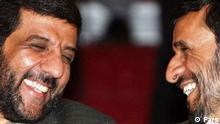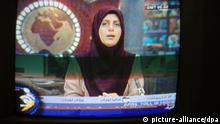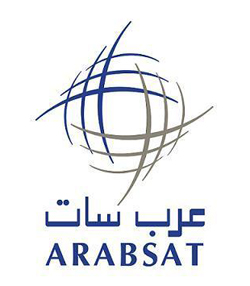Five major international broadcasters — Voice of America, British Broadcasting Corp., Deutsche Welle, Audiovisuel Extérieur de la France and Radio Netherlands Worldwide — recently called on Iran to stop jamming radio and TV signals targeted at that country. “It has been going on intermittently for at least two years,” says Jan Hoek, RNW’s director general. “Stations affected have been VOA’s Persian network, RFE/RL’s Radio Farda and Radio Sawa, the BBC’s Persian TV channel and Deutsche Welle. On occasions, other stations such as RNW’s Dutch TV channel and Radio Sawa (a U.S. Arabic-language station) that use subcarriers on the same satellite transponder have been affected, even though they have no broadcasts aimed at Iran.” According to David Hartshorn, secretary of the Global VSAT Forum, a satellite industry group: “Without question, Iran’s jamming of satellite broadcasters has been on the rise, and markedly so. This is due to the ‘Arab Spring’ domino effect and Iran’s concern that the reform movement will take hold in Tehran and destabilize or, indeed, upend the government.” To stay ahead of the jamming, the broadcasters have been hopping from one satellite to another. “In fact, since June 2009, we have changed satellites 10 times,” says Dave Shiben, head of the U.S. International Broadcasting Bureau’s Satellite Engineering & Transmission department. IBB is VOA’s parent organization. “Because of the jamming that has been aimed at our satellite channels, we’ve been kicked off some satellites and told not to return.” Downlinks Jamming — transmitting radio waves on the same channel as a broadcast, to destroy reception through destructive interference — is nothing new. The Nazis jammed the BBC during World War II. The Soviets jammed VOA and BBC during the Cold War. Even today, jamming is a fact of life. “We still have a lot of situations where shortwave radio broadcasts are jammed by certain countries such as Cuba, for example,” says Jeff White, general manager of U.S. commercial shortwave station WRMI/Radio Miami International — which broadcasts to Cuba — and an officer of the National Association of Shortwave Broadcasters. Fortunately for WRMI and other international broadcasters, “Shortwave is hard to jam effectively,” he said. “The jammer’s effectiveness is usually limited to the local groundwave around the jamming transmitter site. The same is true with jamming in Iran, China, Ethiopia and other places where it’s taking place today.” Unfortunately, the same is not true for satellite jamming. If you uplink an interfering signal directly to the satellite itself (uplink jamming) on the same channel as the one being targeted, a nation can be blacked out. Of course, this requires a lot of power. This is why the Iranians also use “downlink jamming,” broadcasting interfering signals at ground level, to disrupt satellite receivers. According to the five international broadcasters named earlier, Iran is jamming signals on a variety of satellites operated by Eutelsat (France), Intelsat (U.S./Europe) and Arqiva (UK). Ironically, the Iranian government rents channels on these same satellites to deliver its own programming. Given the corporate location of these carriers, one might expect their governments to force them to retaliate against Iran. At the least, since Iran’s jamming causes “collateral damage” to their other broadcast clients, perhaps the carriers themselves would fight back. Then again, maybe not. “Governments cannot order private companies, which most of them are, to stop carrying certain channels,” says Jan Hoek. Further, “The satellite carriers know that if they refuse to carry Iranian channels, a competitor will pick up the business, which is worth a lot of money. The only way it would work would be if every satellite carrier signed an agreement not to carry certain signals, but that’s never going to happen.” Says Hadi Ghaemi, executive director of International Campaign for Human Rights in Iran, “As a collective trade group, all satellite carriers should be concerned about the precedent set by (the) Iranian government’s extensive jamming and work together to bring an end to it. “Specific satellite carriers, like Eutelsat, that provide broadcasting services both to the Iranian government as well as the channels that it jams, have a much more serious responsibility. By continuing to carry Iranian government broadcasts, they are effectively accepting one of their clients (Iranian government) to harm and destroy the products of their other clients. And that is nothing short of allowing Iranian government getting away with jamming.” What about fighting fire with fire — say, with VOA jamming Iran’s satellite TV and terrestrial radio signals on a tit-for-tat basis? “To do so would violate international law,” said André Mendes, director of technology, services and innovation at IBB. “We don’t do that.” For its part, Eutelsat says it has filed “multiple complaints” about Iranian jamming to “the relevant French and international regulatory authorities” since May 2009, according to a Eutelsat statement released in November 2011. As for taking unilateral action against the Iranians? “We will not do anything about a channel if we do not get a clear order backed by law,” said Eutelsat CEO Michel de Rosen in a December 2011 interview with the Wall Street Journal. WRC Ultimately, “It is the role of the U.N. to address Iran’s actions,” says David Hartshorn. “But so far there has been no forceful action undertaken.” As a result, Iran can continue to jam VOA, BBC and others with impunity. Thus a statement issued by the Big Five broadcasters may seem hollow: “We call upon the regulatory authorities to take action against those who deliberately cause interference to satellite signals on the grounds that this is contrary to international conventions for the use of satellites. We specifically ask national telecommunications authorities to take up the issue at an upcoming meeting of the International Telecommunication Union in Geneva.” For his part, IBB’s Dave Shiben expects Iran’s jamming “to be a hot topic” at the ITU World Radiocommunication Conference (WRC 2012) taking place this month. Will the WRC bring the Iranians to heel? RNW’s Jan Hoek doesn’t think so. “Formal complaints to the ITU can help to raise awareness of what Iran is believed to be doing, and cause some embarrassment to the Iranian government, but so far this has not stopped the jamming,” he told Radio World. “It’s impossible to stop someone uploading a signal to a satellite if they know the technical parameters ... In the short term, the only answer is to switch to a different satellite and hope it takes a while for the Iranians to discover the new parameters.” |

 Print
Print Send
Send








 Preliminary investigations into the jamming of Arabsat satellite transmission shows that it is originating from Ethiopia, Lebanese Telecommunications Minister Nicolas Sahnawi said on Wednesday.
Preliminary investigations into the jamming of Arabsat satellite transmission shows that it is originating from Ethiopia, Lebanese Telecommunications Minister Nicolas Sahnawi said on Wednesday.


